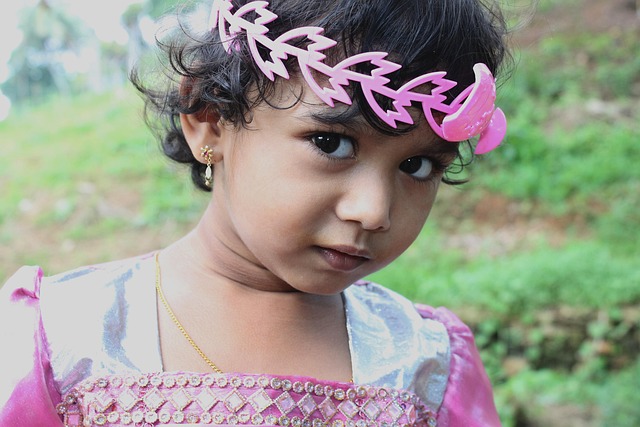Child advocacy programs focus on protecting the rights of vulnerable children, addressing mental health and emotional well-being through tailored support systems. This involves early intervention, education, legal protection, and a safe environment for healing. Integrating mental health professionals and resources is crucial to prevent further trauma and equip children with coping mechanisms. By collaborating with community services and advocating for policies prioritizing counseling, these programs foster holistic development, ensuring child safety, education rights, and overall resilience, especially for those in the justice system. Effective child welfare services prioritize emotional well-being, empowering children to manage emotions and build a brighter future.
In the heart of child welfare lies a profound commitment to safeguarding and nurturing vulnerable young lives. This article explores the vital task of prioritizing mental health and emotional well-being within the framework of child advocacy programs. We delve into the unique challenges faced by child welfare services, emphasizing the integration of mental health support as a game-changer in protecting children’s rights and ensuring their safety. From fostering holistic development to advocating for education and legal rights, we uncover strategies to build a supportive ecosystem for vulnerable children.
Understanding the Unique Challenges of Child Welfare
Child welfare is a complex field that faces unique challenges when it comes to mental health and emotional well-being. Child advocacy programs aim to protect children’s rights, but they often encounter situations of trauma, abuse, and neglect. These experiences can significantly impact a child’s mental health, making it crucial for child welfare services to incorporate comprehensive support systems. By understanding the intricate needs of vulnerable children, we can create effective strategies that foster their development while ensuring their safety.
The journey towards prioritizing emotional well-being involves various components, including early intervention programs, access to quality education, and legal advocacy for at-risk youth. Protecting children’s rights goes beyond physical safety; it entails providing a supportive environment that encourages healing and growth. Juvenile legal advocacy plays a vital role in this process by ensuring that the legal system considers the unique needs of children, addressing issues like child abuse prevention and supporting their education rights.
Integrating Mental Health Support into Child Advocacy Programs
Integrating mental health support into child advocacy programs is a critical step in ensuring holistic care for vulnerable children. Child welfare services must recognize that emotional well-being is an integral part of protecting children’s rights and fostering their development. By incorporating mental health professionals and resources, these programs can address the unique needs of children who have experienced trauma or are at risk of abuse. This proactive approach not only prevents further harm but also equips children with essential coping mechanisms to navigate challenges.
Incorporating support for vulnerable children within child advocacy initiatives involves a multi-faceted strategy. It includes educating advocates on mental health literacy, establishing partnerships with community-based therapy services, and advocating for policies that prioritize access to counseling and psychological services for at-risk youth. Ensuring child safety and education rights are met simultaneously, as these fundamental aspects contribute to a child’s overall resilience and future success.
Strategies for Protecting Children's Rights and Ensuring Safety
In the realm of child welfare, prioritizing mental health and emotional well-being is paramount to safeguarding children’s future. Child advocacy programs play a crucial role in protecting children’s rights and ensuring their safety by fostering a comprehensive support system. These initiatives focus on early intervention, providing resources for vulnerable children, and promoting their development. By integrating mental health services into child welfare services, professionals can effectively prevent and address child abuse, ensuring every child receives the care they need to thrive.
Juvenile legal advocacy is another vital strategy, aiming to uphold the education rights of children involved in the justice system. Equitable access to education not only supports their academic development but also contributes to their overall emotional well-being. Collaboration between child welfare agencies, educational institutions, and legal advocates ensures that children’s voices are heard, their rights respected, and they receive the necessary support to navigate challenging circumstances. This multi-faceted approach fosters a safe and nurturing environment, enabling children to heal and grow.
Fostering Holistic Development: Education, Legal Advocacy, and Beyond
In the realm of child welfare, prioritizing mental health and emotional well-being goes beyond immediate safety measures; it involves fostering holistic development. Child advocacy programs and welfare services must empower children by providing education that not only teaches academic skills but also promotes social-emotional learning, enabling them to navigate their emotions and build resilience. Ensuring children have access to legal advocacy is equally crucial, as it protects their rights and safeguards them from potential abuse or neglect.
Beyond these aspects, supporting vulnerable children requires a multifaceted approach. This includes creating safe spaces where they can express themselves freely, accessing therapeutic interventions when needed, and advocating for their education rights. By integrating these elements, child welfare systems can effectively prevent child abuse, promote healthy development, and ensure the well-being of those in their care, ultimately fostering a brighter future for each child.
In prioritizing mental health and emotional well-being in child welfare, we acknowledge that a holistic approach is imperative. By seamlessly integrating mental health support into existing child advocacy programs, and fostering a culture of understanding and resilience, we can effectively protect children’s rights and ensure their safety. Through comprehensive strategies that encompass education, legal advocacy, and beyond, we empower ourselves to prevent child abuse and promote the fostering child development needed for a brighter future.
